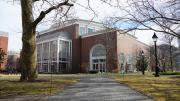Almost all the drugs that physicians prescribe to cure diseases or treat specific medical conditions were discovered by trial and error, and the way they work is frequently not well understood. But that outmoded discovery process and the lack of understanding must change, say scientists in academia and the pharmaceutical industry. A threatening combination—rising drug-development costs (the approval process for a single drug can approach $1 billion); a dramatically slower pace for new drug discovery (as the most promising compounds and target pathways yield diminishing returns); and an increase in the diagnosis of drug-resistant diseases—has the potential to imperil a health system that relies on chemical compounds to cure human disease.
But a burgeoning ability to analyze and understand complex biological systems has led Harvard Medical School (HMS) to announce a new approach to developing therapeutic treatments. Called systems pharmacology, the new initiative, led by Enders University Professor of systems biology Marc Kirschner (chair of the HMS department of systems biology) and systems biology professors Tim Mitchison and Peter Sorger, will bring together more than a dozen existing and 10 new faculty members from a broad array of disciplines: systems biology, cell biology, genetics, immunology, neurobiology, pharmacology, medicine, physics, computer science, and mathematics. Working together, these experts will build models of complex biological systems in order to understand how drugs interact not just with their cellular targets, but also with the system as a whole. The effort will also include novel approaches to pharmacology, including use of chemical probes to elucidate biological pathways, and "failure analysis," which will seek to understand why unsuccessful drugs don't work.
It is "very difficult to make drugs that work well and are safe," says William Chin, HMS executive dean for research, who was recruited from the pharmaceutical company Eli Lilly and Company by current HMS dean Jeffrey Flier. The new initiative, part of an effort begun by Flier to bridge basic research and clinical practice, will build on the school's innovative systems-biology approach to understanding complex systems during the coming decades (as described for Harvard Magazine by professor of systems biology Pamela Silver).
The systems pharmacology initiative will seek to develop not only drugs for individual conditions, but an entirely new approach to drug discovery. And it also aims to develop a new generation of cross-disciplinary scientific researchers trained in systems biology-based methods through Harvard’s Ph.D. programs in systems biology and chemical biology. "The goal," says Mitchison, "is to train students to be future leaders in systems pharmacology and therapeutic discovery, in both academia and industry."








